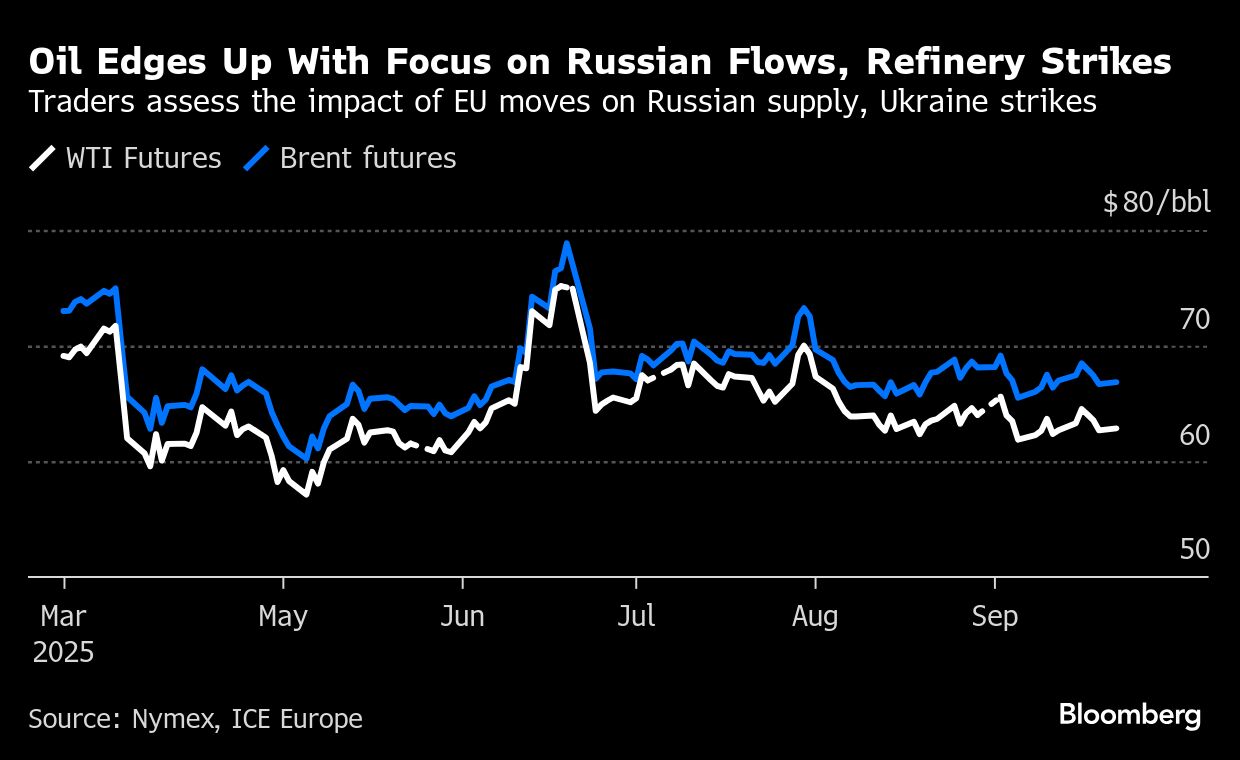
- Brent crude traded above $66 a barrel after a 0.5% drop last week
- EU sanctions target Russian oil entities in third countries like China
- China and India benefit from discounted Russian oil under a price cap
Oil traded little changed following last week's small loss as traders gauge the impact of the European Union's latest moves on Russian supplies and strikes by Ukraine on the OPEC+ member's energy infrastructure.
Global benchmark Brent traded near $67 a barrel after slipping 0.5% last week, while West Texas Intermediate was at about $63. The EU's next round of sanctions against Russia will focus on oil industry entities in so-called third countries, affecting about a dozen Chinese and several Indian bodies as the bloc looks to intensify pressure on the Kremlin's access to petrodollars.
China and India have made the most of discounted Russian supplies that remain available amid a Group of Seven price-cap mechanism that was designed to keep oil flowing while limiting Moscow's revenues. While US President Donald Trump on Saturday renewed his call for European countries to stop buying oil from Russia, French President Emmanuel Macron said the EU's remaining energy imports from the nation were “very marginal.”

Meanwhile, Ukraine claimed strikes that damaged energy infrastructure deep within Russian territory on Saturday, including pumping stations on a trunk oil pipeline, following earlier attacks on two refineries. Kyiv has intensified its drone attacks over the past month.
“Ukrainian attacks on Russian crude and product infrastructure is the bull-factor which could counter bearish price developments for crude prices,” said Bjarne Schieldrop, chief commodities analyst at SEB AB. “But the intensity of the attacks is not yet at a level which can inflict serious, enduring impact on Russian oil infrastructure.”
Crude prices have remained within a $5 range since early August as traders balance forecasts for a glut later in the year against geopolitical risks. An amicable exchange between Trump and Chinese President Xi Jinping on Friday eased tensions between the two biggest oil consumers, and reduced concerns that Washington would place levies on Beijing for buying Russian crude.
Prices:
Brent for November settlement was steady at $66.68 a barrel at 10:24 a.m. in London.
WTI for October delivery, which expires Monday, added 0.6% to $63.04 a barrel.
Catch all the live markets here for real-time updates, stock movements, and broader market trends throughout the day.
Essential Business Intelligence, Continuous LIVE TV, Sharp Market Insights, Practical Personal Finance Advice and Latest Stories — On NDTV Profit.























